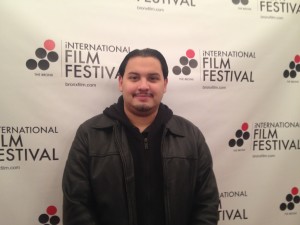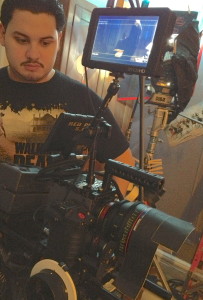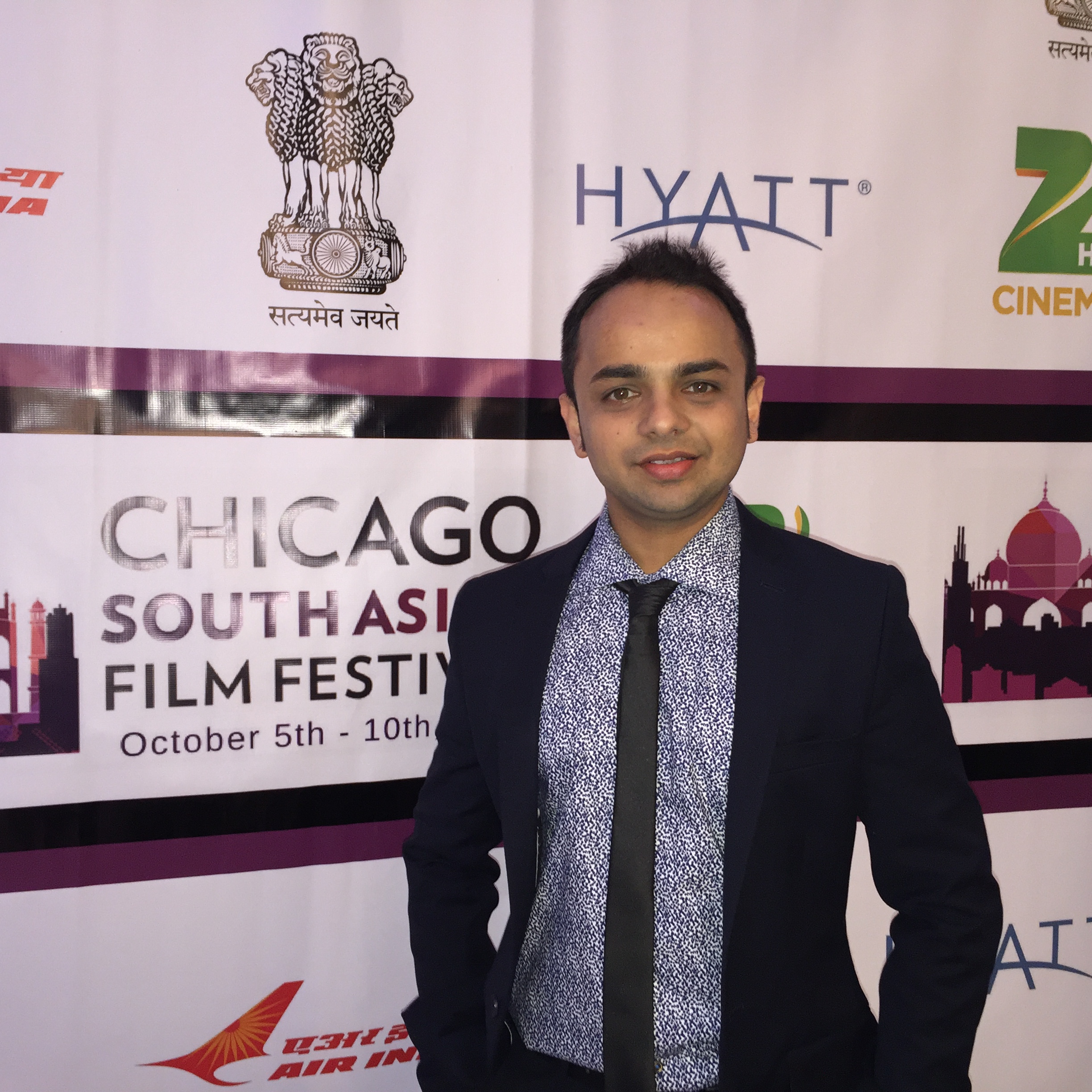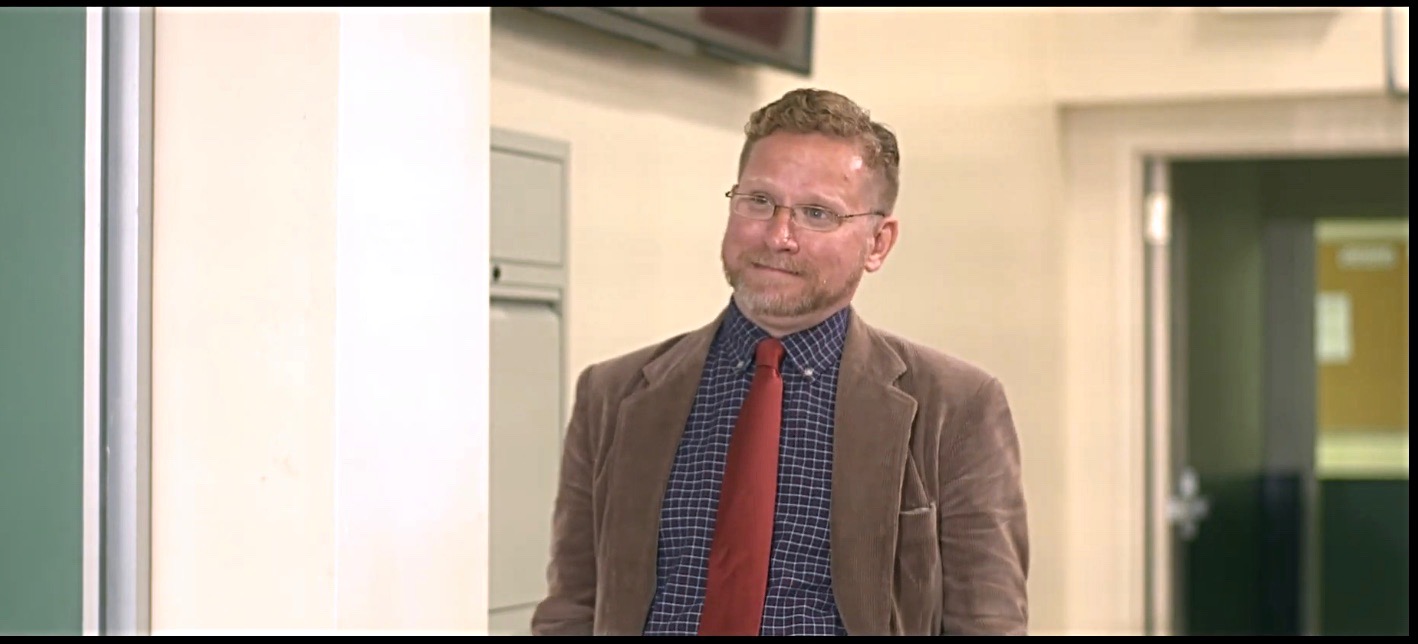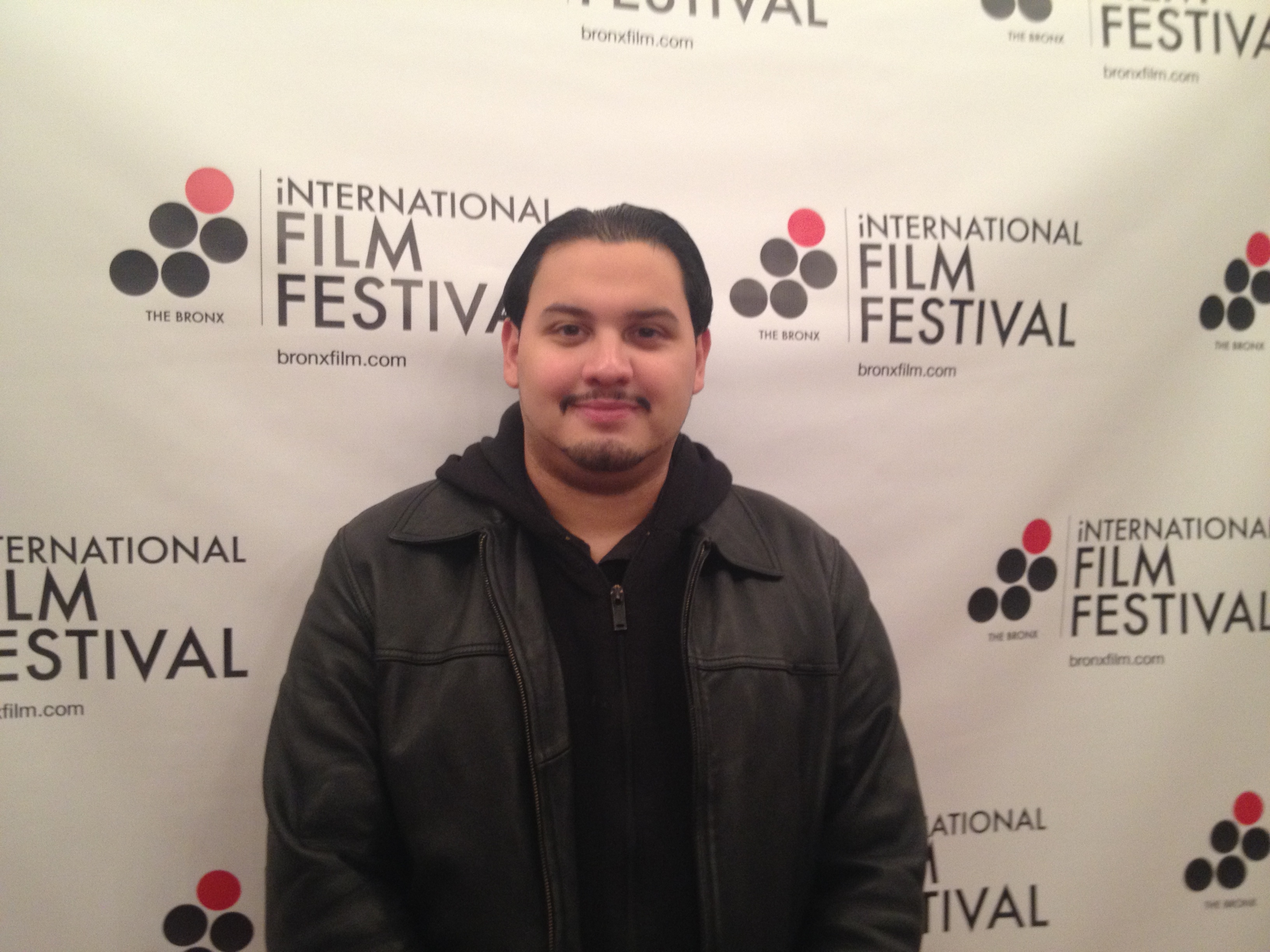
In Their Own Words: Director/Producer/Writer Michael Fels of “Charles Haux” & “GoFish”
Good day to everyone! Over time, one particular facet of the independent film world has been evident based on the opportunities offered to me here at OneFilmFan.com–New York City is a serious hotbed of activity! With several features covering NYC-based filmmakers, actors, and directors to date, it has been a truly eye-opening experience to learn about the productions taking place in what many would call “Hollywood East”. But these individuals have a passion, a drive, and the fortitude to press forward with projects, even when it means there’s hardly a budget, relatively low exposure, and no guarantee for their film’s distribution. The absolute LOVE of filmmaking simply keeps them going. And the results speak for themselves. With this in mind, well-reputed director/producer/writer Michael Fels took the time to interview with OneFilmFan.com and expound on his journey, current projects, and the realm of indie film.
One Film Fan: A son of The Big Apple, correct? How were you first drawn to the film industry in general? When did it become evident that film was going to be your career choice?
Michael Fels: I was born in NYC, but grew up watching classic films in Mount Vernon, NY. I spent four years in Long Island getting a Bachelor’s in Fine Arts in Film and Video from Five Town College and graduated in the class of 2009. Amazing classic films influenced me in a strong way. As a fan of film, I enjoyed how everyone could experience the same thing and yet have different opinions on that same piece.
I made up my mind to be a filmmaker when my eighth grade school yearbook needed a quote for what we wanted to be when we grow up. Most people said they wanted to be famous athletes or singers, but I said I wanted to be an award winning filmmaker. Studying film made that possible and now I am living my dream every time I step on a set.
O.F.F.: Expanding on this, how did you further learn/enhance your skill sets (ie: mentors, influences, and schooling)?
M.F.: I went to Five Towns College in 2005-2009 for a BFA in Film and Video because, unlike most other colleges, the students were given hands on experience from day one. When the program limited freshmen from using certain cameras because of limitations in availability, I bought my own and became a Director of Photography that worked with many of the seniors. The camera became outdated by the time I graduated due to an ever-increasing technology boom but you could not put a price on the experience, connections, and friends I made along the way because of that camera.
I like to watch as many films and TV shows as possible to stay up to date with the conversation at hand. I believe I learned from not only every teacher I had, but also my fellow students and life experiences along the way. I continue to learn how to improve my skills on each job from my colleagues. I admire the great filmmakers and their styles, but realize I have my own path to walk and can only hope that our paths cross one day in the future and for those that have passed on I can only hope to do an homage shot or scene that is close to their skill level.
O.F.F.: What was you very first project and how did that prepare you for the future in the film industry?
M.F.: My first project I produced, directed, and edited was a black and white film noir style horror music video/short film of the song “Converting Vegetarians” by Infected Mushroom (a Psychedelic Trance Band.) It was an artsy song with very few words “This is the time of the revolution, converting vegetarians.” I no longer work on such artsy looking pieces, but will always remember my first film with fond memories. I was inspired to tell the story that those eerie notes and minimalistic lyrics painted in my minds eye and was eager to make my first vision a reality. It was a film about a non-confrontational vegetarian who catches his girlfriend, that he recently gave a promise ring to, cheating on him and is not only left by her but beaten up by her new lover.
This event brings him to his breaking point and he swears revenge on his ex and her lover. He meets a new girl while planning his perfect crime. One night, he stalks her lover with a knife into a side room of his job (off camera), his ex walks into see the ghastly off camera scene, then walks backward out of the room in shock. He then comes out of the darkness and raises his knife (suggesting she his killed). The next day, he prepares a meal for his new girlfriend and it is revealed that the ring he gave the ex girlfriend is in the meal when he bites down. He quickly spits out the ring, cleans it off, and gives it to the new girlfriend. Working so well with my fellow students on this project made me want to work on as many projects as I could and that experience taught me how to take a concept and make it a reality.
O.F.F.: Per your bio, you’re a man of MANY “hats” when it comes to involvement in film projects via lighting, producing, and directing. How beneficial has it therefore been to have such an extensive arsenal of skills at your disposal?
M.F.: I learned through my formal education the proper procedure to making a film. My many on set experiences in the New York and New Jersey film industry continue to give me the opportunity to put this knowledge into real world use. Producing and/or directing a film is second nature to me because I know what each piece of equipment does, how to set it up, and how long it takes to set up and what each job position should be doing when. Many directors and producers do not know the ins and outs and waste time and money because of this. I have acted before and continue to help out films that need an extra or supporting role on the fly. I try to empathize with the actors, I work with and also speak to them regarding the characters background, and also hear their input as well, since they are the ones embodying the character. Empathy is one of the most important parts of my process.
As a Gaffer or Key Grip, I work with the Grip & Electric team to paint the scene with light (as to the Cinematographer’s wishes) and always make sure that it is done safely. I also try to build up connections on every job I work, and usually try to add the people that impressed me the most into my list of contacts. I now can easily staff any project I work on with trusted and talented individuals. As a casting director, I can help bring the right talent onto a project. For example, we had over seven hundred women apply online for one particular extra role in a piece I was working, and that can be overwhelming for most, but not for me. I know how to cut that number down and schedule out auditions in a way that only the people best suited for the part are brought to the table. Having this “jack of all trades” skill set makes it easy for me to see a project through from start to finish. As a writer, I also can script doctor a piece for a client to make it more practical to film and more audience friendly. I have editing experience and have done ADR and post sound so I am familiar enough with the process to make the best possible end product.
O.F.F.: You’ve worked on feature films, independent short films, music videos, commercials, and graduate films at NYU, SVA, & also NYFA! How has that multi-platform experience helped shape you and your career?
M.F.: Each job requires the same aspects (camera, lights, sound, editing, budget, crewing up, casting, etc.), no matter if it’s a short, commercial, feature, or music video. I use my talents in the way that best suits that project and take every job and every day on set seriously. I would prefer to work on stories that will engage the audience, as well as entertain and/or inform them, no matter their length. I just finished a Bollywood Feature entitled “Dot Com Mom” as a gaffer, which was at first unusual due to the random dance scenes in the middle of a storyline. But, having music video experience, it all turned out to be business as usual.
O.F.F.: Have you yet found that any one particular aspect of what you do in film is the most appealing? Maybe some of it you don’t prefer? Or is it all equal?
M.F.: I enjoy directing the most but realize that being a producer on the piece as well helps me further guide the project from start to finish and guarantees more say and knowledge into the budget. Working as a Casting Director as well means more say on whom I will be directing. Writing a story in my experience means a piece of your soul is left on the paper, which is both a good and bad thing. Script doctoring helps me when I produce others stories to make them more practical and audience friendly.
Lighting is near and dear to my heart and honest artistic work. When I light, I try not to wear other hats. My Assistant Directing career is the most fun and one of the most stressful as it up to you to keep the film day and work flow on time and productive. Working as an Assistant Director has improved my Directing in an invaluable way.
O.F.F.: So, onto your recent projects, the indie films “Charles Haux” and “Go Fish”, the first in post-production and the latter completed. What drew you to these films or how did the opportunities come about?
M.F.: Executive Producer of “Charles Haux” Nicholas Iorio and I had worked together in the past as scriptwriters. He informed me he wanted to bring a published piece he wrote years back to life on the big screen. I jumped at the chance to work with a talented and trusted friend and colleague. As Co-director, Producer, and Casting Director, we worked seamlessly together to make “Charles Haux” the best it could be, on time and in budget.
The Cinematographer of “Go Fish” Jon Mendez worked with me many times and when his Executive Producer Jamila Brown informed him that she needed a Producer and Assistant Director, he suggested me. We work very well together and he knew that despite a small window of time to work, I could help make the project happen. After a few script doctoring sessions Jamila Brown and I came up with a great script that I am proud to say I had the pleasure to work on. I crewed up and we went into production a few weeks after hiring.
O.F.F.: Tell us a bit about how it’s been overall so far working on these projects, given you are producer, co/assistant director, and casting director on both, with the additional contribution of co-writing/editing credit on “Go Fish”.
M.F.: “Charles Haux” was based in my hometown, and Nicholas Iorio is a trusted friend and colleague, so it was easy to have meetings and organize every detail. We hired only crewmembers that I have had the pleasure of working with before. Casting was a top priority, and we looked through many options. The dedication of myself and the cast and crew brought a positive element to the filming of the production that translated in the form of speed and efficiency while on set.
“Go Fish” was organized the same way, but in less time out of necessity. I was proud of the riot scene of “GoFish” and that it ironically was one of the most organized days of shooting I have had. “GoFish” is a period piece based in the 90’s that deals with race relations. In this current political climate, it felt like the right thing to do to work on this film.
O.F.F.: When casting these films, what is your process in determining who you’re wanting for a given role?
M.F.: The look of the headshot, as well as the intrinsic attributes such as height, weight, hair color and length, are the physical first test that actors must go through as they must look the part. I then look at the union status. Next, I look at the number of lead roles and supporting roles, as well as appearances in well-known works. I then look at the skills section of the actor for their accent options. After successfully contacting and receiving the actors contact information, I have them set up an in person audition. But, during this time, I am secretly doing a phone interview and rating the actors personalities. If they measure up, then they can audition.
I give “sides” prior, and ask that they bring them, but always give more points to actors that memorize. At the fifteen-minute audition, I have a detailed rating system that I fill out after introductions and watching their performance. I then give notes on how to alter the performance to judge how the actor takes direction. If all went right, I ask the actor to do it again, but in their own words, and not to worry about the exact lines. This is to verify that they understand the work and the feelings behind them. The audition ends and I write down my final notes and reviews. At the end of the day, I review and see which top three for all the days of auditions are viable and compare what they would look like on screen together by comparing head shots as well as their availability. We (the other casting director or client) then decide who would work best.
O.F.F.: How was it working with the crewmembers of each production, as I know you mention in your bio how truly important it is to have a great working relationship with them?
M.F.: The Cinematographer of “GoFish”, Jon Mendez, is very talented and knows how to keep a production going. The shot lists are well thought out and detailed prior, and he abides by my timetable and always manages to get a beautiful image.
The Cinematographer of “Charles Haux”, Alex Zielinski, managed to get the shot list we worked out, and a few a specialized shots of his own design, in the timetable we set up, while managing to work the steady cam for the whole shoot without batting an eye. He is a true talent.
The other jobs and departments were each run and completed by trusted, capable friends and colleagues that without their help the film could not be made.
O.F.F.: You were co-directing with friend and colleague Nicholas Iorio on “Haux”? Get the feeling you two have a long working history?
M.F.: Nicholas was a writer by trade and I, as a filmmaker, meshed with his talents. I helped bring him on a short film as a screenwriter. He also worked with me on a writing team for a TV show that, due to budget constraints, could only film a short film instead of the TV pilot. We wrote many episodes together and had a workflow that brought out the best of the piece. We always worked on a writer’s team, and it was great to work on a piece that was just his. We plan to work together on future shorts and are deciding if a particular piece we are planning to write should be a feature or a pilot.
O.F.F.: Ready to get both of these films out onto the Festival Circuit in their respective times I can only imagine? Having had work submitted to Festivals as prestigious as Sundance and Cannes must be a great feeling!
M.F.: I have had the pleasure of working on films that have gone on to have a great festival run. Most of the time, the level of success meant these great filmmaker connections I made would move to California or France. You never know which films will connect with an audience, and I am happy that so many films I worked on have done well.
I worked on a NYU Grad short “Manhattan Melody” and a few months later the Assistant Director of that piece won an Academy Award for his own short “God of Love.” This proved to me that dreams could be achieved through hard work and well executed plans. I have high hopes for all films I work on and wish them all success. Filmmakers make films, not for awards, but because they have a need to tell stories. Filmmaking is a vocation.
O.F.F.: I can only guess you feel a great sense of overall accomplishment in working on these films. Does this influence you to want to go beyond indie films to big budget features at some point, or have you found smaller productions suit you more? What would be your dream project to be a part of?
M.F.: I have worked on a music video, “Give it All To Me”, by Mavado feat. Nicki Minaj. I also worked on a short film with Mark Magolis (Breaking Bad). What I quickly realized is that famous people are just people, living their dream, and are recognized by others for their accomplishments. I would love to work on any projects that come my way. I know that an indie feature gives more freedom then a studio run project will but I am a team player and when that much money is at stake the project must always come first as well as the producers team/ Studios needs. I try and make my clients happy no matter the project.
O.F.F.: What else is currently on the horizon for Michael Fels?
M.F.: Several short films myself and a team of filmmakers worked on are in postproduction and being organized into an anthology entitled “Devil’s Five.” I plan to see all projects that are in post through to completion. Another piece I associate produced, entitled “Shepard”, is starting its festival run soon, as are many other projects that I worked on the lighting team for.
I plan to work on as many films as possible in the future. I am planning to write another piece with Nicholas Iorio, which I mentioned briefly. After that, I will begin working on my post-apocalyptic novel that has been in my thoughts for longer then I would like, and I believe putting it to paper will let me rest easier at night.
O.F.F.: As readers are used to, this is always my final question. What is YOUR favorite film of all time? Why?
M.F.: The feature film “There Will Be Blood” (Nominated for 8 Academy awards and winner of “Best Actor” and “Best Cinematographer” in 2007) is my favorite American made film of all time. The film is a character piece where every action and line of dialogue mattered. It had me on the edge of my seat. The cinematography, editing, and score are the vehicle that brings out the award winning performances and unique storyline.
My favorite foreign film has to be “Cinema Paridiso” (Winner of the Best Foreign Film Academy Award in 1989). This Italian film is a love letter to filmmakers, and if you haven’t seen it, drop what you are doing and check it out.
My favorite film I have directed personally is my live action version of “Death Note.” I Produced and Directed this piece in my junior year (2008) and received a “Viewer’s Choice Award” from Five Towns College for it. I was eager to share this live action piece with other fans of this famous manga/ anime series on the Internet, and it was well received. The American studios have actually bought the rights to “Death Note” from the Japanese creators as well as many other popular Anime/Manga series.
I think the success of Marvel and DC comic book movies has changed the culture of America in a unique way, and spurred on the mass buying of copyrights of these types of films by major studios. “Birdman” (The academy award winner of “Best Picture”, “Best Original Screenplay”, “Best Director”, and Best Cinematography of 2015 ) deals with the paradox of working on comic book films versus artsy films, which I related to in a weird way because of my “Death Note” film and all the other drama films I have had the pleasure of working on. “Birdman” is my favorite film of 2015. I am excited to see what other stories filmmakers can bring into the world in the years to come, and hope to be a part of as many of them as I can with my time in this world.
It continues to astound me, as a film fan, the level of talent that exists within the independent film community, and Michael Fels is by far no exception to that! In depth, multi-faceted, confident, yet humble and fully engaged in the art he loves and chooses to be a part of. Michael is striving to gain the success that only comes from dedicating oneself to this level of work ethic and constant seeking of what comes next in order to make the connections necessary to push on to even bigger and better opportunity, while not forgetting where he’s been in the process.
In the meantime, keep up with Michael Fels via:
“Like” and “Follow” his Facebook Page: here
Michael’s IMDb Page: here
As always, I extend one more heartfelt “Thank you!!” to Michael for his reaching out to me here at OneFilmFan.com and providing this chance to interview him during a consistently busy filming schedule!
Stay tuned for more coverage on the projects “Charles Haux” and “GoFish”, including interviews with Michael’s friend and colleague Nicholas Iorio, “GoFish” producer Jamila Brown, as well as my review of that film! Until next time, thank you for reading and please, spread the word about this interview and OneFilmFan.com!
